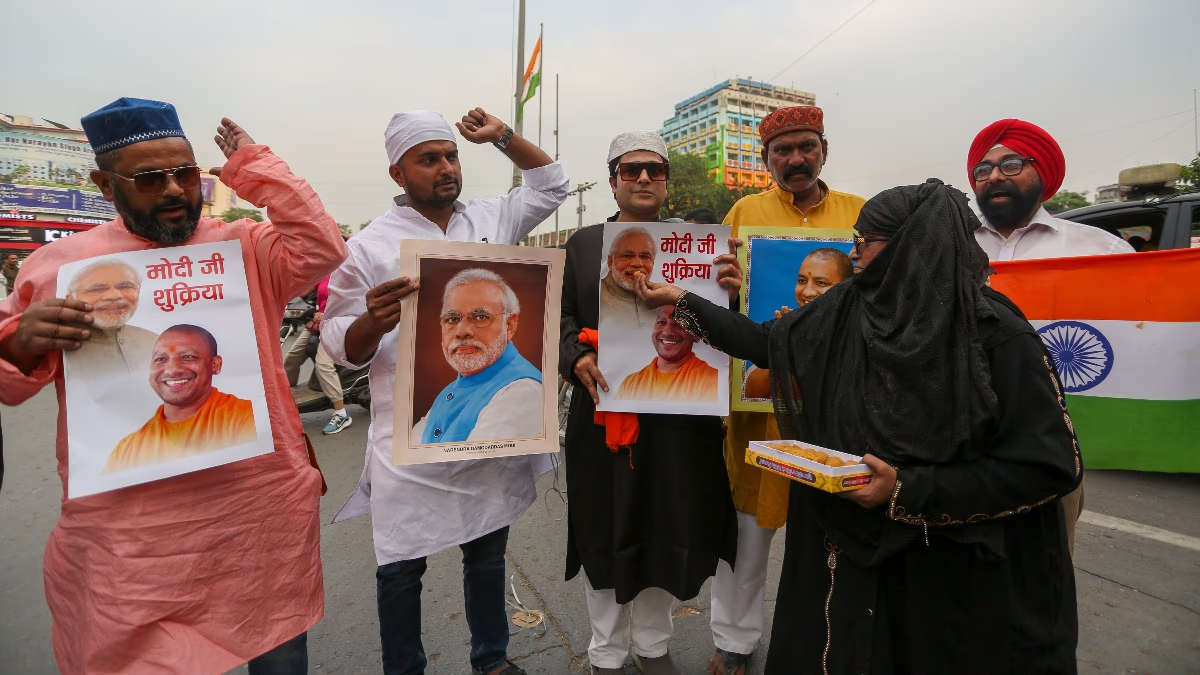After nearly 12 hours of heated debate in the Lok Sabha, the Waqf Amendment Bill 2025 has been passed. Today, it is being presented in the Rajya Sabha and is expected to pass today itself. The Waqf Bill introduces several changes to the management and regulation of properties. It aims to bring waqf property management under government supervision and increase transparency. While Muslims will still be allowed to create waqf, they must adhere to strict rules and conditions.
Let's explore what this bill enables and restricts Muslims to do, and its impact on the Muslim community.
1- End of 'Waqf by User'
The Waqf (Amendment) Bill 2025 abolishes the provision of 'Waqf by user'. Now, only properties formally dedicated to waqf (via written documents or wills) will be considered waqf. Previously, properties used for community or religious purposes by the Muslim community were automatically considered waqf even without formal documentation.
However, with the bill's passage in Lok Sabha, properties like mosques, graveyards, or shrines, long used for religious purposes but lacking legal documentation, will no longer be deemed waqf.
Every waqf property will be evaluated by the district collector. Without proof, no board can lay claim to any place as waqf.
For example, consider a village land used as a graveyard for 100 years but never formally declared waqf. Previously recognized as waqf under ‘waqf by user’, it will no longer be deemed waqf under the new law unless documented evidence is presented.
2. Conditions for Muslims Donating Property
Under the Waqf (Amendment) Bill 2025, Muslims now need to fulfill certain conditions before donating property. Home Minister Amit Shah explained that 'waqf' signifies donating valuable property to Allah for the welfare of Islam. Donations can only concern one's property, not government or others'.
Shah emphasized that donations should be from one's own assets. Donations of government or someone else's property are not permissible.
According to new provisions, only Muslims who have followed Islam for at least five years and legally own the property can donate to waqf. The 2013 amendment removed this provision, but it has now been reinstated.
This means individuals converting to Islam less than five years ago cannot donate their property as waqf. They must wait five years.
3. Women Must Receive Their Share Before Waqf
Waqf (Amendment) Bill 2025 introduces a provision mandating Muslims to allot women their rightful share before donating any property as waqf. Special provisions cover widows, divorced women, and orphans.
For instance, someone wishing to donate 10 bighas must first allocate shares to his daughter, widow sister, and orphan nephew. Previously, total property could be entirely given to waqf, but now heirs must receive their shares first.
Before designating waqf, checks will ensure daughters, sisters, wives, widows, divorced women, and orphans receive their share; failing this, the waqf will not be valid.
4. Tribal Land Cannot Be Declared Waqf
The Waqf (Amendment) Bill 2025 offers comprehensive protection for tribal lands. In India, tribal lands are marked and preserved under the Constitution's Fifth and Sixth Schedules, forming part of their culture, livelihood, and identity.
The new rules stipulate that tribal lands, recorded under Scheduled Tribes or traditional jurisdictions, cannot be claimed by the waqf board or donated as waqf property. This aims to safeguard the interests of tribal communities.
5. Repeal of Section 40
The elimination of Section 40 in the Waqf (Amendment) Bill 2025 marks a significant change. Understanding what Section 40 entailed and its implications is crucial.
Section 40 previously empowered the waqf board to unilaterally deem properties as waqf. Without substantial proof or court orders, properties could be claimed.
Abuse of this power occurred often. With Section 40's removal, property waqf status inquiries and decisions will fall under the district collector or state-appointed officials.
The waqf tribunal's decisions, once final, can now be appealed in the high court within 90 days.
6. Protection for ASI Land and Properties
Under the Waqf Amendment Bill 2025, any declaration or notification involving waqf properties will be invalid if such properties are protected under the Ancient Monuments Preservation Act, 1904 or the Ancient Monuments and Archaeological Sites and Remains Act, 1958 at the time of such declaration or notification.
This exclusion means ASI-protected monuments are now outside waqf jurisdiction.
The Taj Mahal, for instance, was attempted as a waqf property.
7. Greater Authority for Collectors
The district collectors are granted significant authority in waqf property management and dispute resolution, differing from the 1995 Waqf Act which conferred little role to them. Collectors will now verify governmental properties and resolve disputes.
Home Minister Amit Shah argued that misgivings about collectors handling waqf land inspections are unfounded, as collectors already establish ownership for temple lands.
8. Inclusion of Non-Muslims in Central and State Waqf Boards
The new bill promotes inclusivity by appointing non-Muslim members on Central and State Waqf Boards. Minority affairs minister Kiren Rijiju indicated a maximum of four and minimum of two non-Muslim members could sit on the Central Waqf Council. Their role includes ensuring compliance with donation-related regulations without engaging in religious activities.
Moreover, at least two women, Muslim or non-Muslim, will be included in both councils.




